International Affairs
 |
 |
 |
 |
 |
 |
 |
Putin and the Plaque
Putin's Russia is on the move. Despite the embarrassment of America's recent attack on two Syrian airbases, Moscow continues its military alliance with the People's Republic of China, its active subversion in Europe and, to a lesser extent, in the United States and its involvement in Latin America.
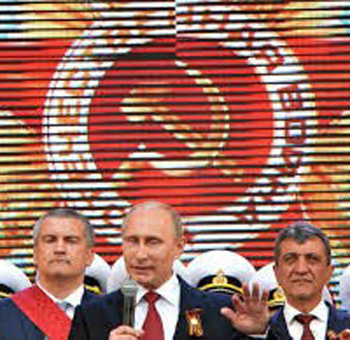 The question of Putin's motivation behind these acts of international aggression is, however, by no means settled. Many devout Catholics still see Putin as a defender of Christianity and oppressed believers.
The question of Putin's motivation behind these acts of international aggression is, however, by no means settled. Many devout Catholics still see Putin as a defender of Christianity and oppressed believers.
Others regard the Russian president and his government as only a group of crooks holding on to power solely to increase their personal wealth. Russian dissident (and former chess grand champion) Garry Kasparov supports this view. Kasparov, in his book Winter Is Coming, declares that "Putin is not an ideologue. He wants to rule like Josef Stalin but lives like Roman Abramovich [fabulously wealthy oligarch and Putin crony]." (1)
Some consider Putin as a would-be Tsar, other observers characterize the Russian leader simply as a power-hungry fascist.
With all due respect to the above analysts, including Mr. Kasparov, this writer believes that Putin is a communist who, despite his personal greed and that of his friends, is seeking to re-form a Soviet State, which would also have close ties with other communist governments, especially the Peoples Republic of China.
The starkest indicator of Putin's Communism is affixed to the exterior of the headquarters of Russia's Foreign Intelligence Service (in Latin characters transliterated from the Cyrillic, SVR). It is a bronze plaque honoring one of the most notorious Soviet spies operating during the Cold War.
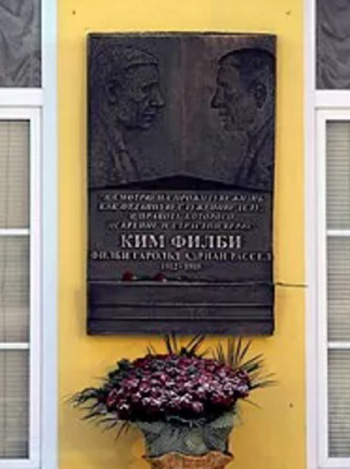 The plaque was dedicated in December 2010 and bears the inscription, "I look back on my life as given to the service of a cause that I sincerely and passionately believe is right." The plaque commemorates the British traitor Harold Adrian Russell Philby, or simply Kim Philby, as his friends knew him.
The plaque was dedicated in December 2010 and bears the inscription, "I look back on my life as given to the service of a cause that I sincerely and passionately believe is right." The plaque commemorates the British traitor Harold Adrian Russell Philby, or simply Kim Philby, as his friends knew him.
The head of the SVR, Mikhail Fradkov, unveiled the plaque. Russian press reports stated that Philby, who fled to the Soviet Union in 1963, had worked with "young intelligence officers" and had even founded his own espionage school. Philby was described in the Russian press as "legendary."
Philby was certainly no ordinary spy, as his funeral in 1963 attests. Philby was buried with full Soviet military honors, including a KGB honor guard, which fired three volleys over his grave. The honors accorded him appeared to verify reports that Philby was, in fact, a KGB general. During the funeral he was eulogized as "a great internationalist and famous Soviet intelligence agent."
The present importance of Philby comes from the timing and location of the memorial. Putin's campaign of Soviet reverie was in full swing, as was the commemoration of Soviet espionage heroes. Of all those honored, none received honors as did Philby, who was thus revered as a special example to all present Russian intelligence agents.
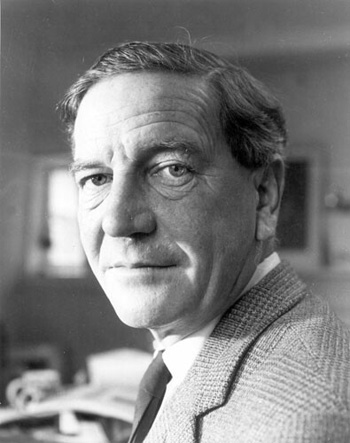 Philby's career not only exemplified an unwavering faith in Communism above all else (including marriage and close friendships), but also acknowledged that a communist had to be politically flexible. Mistakes would happen, even leaders would fail the communist ideal. Philby's ultimate faith in Communism, and the flexibility of that faith, are essential qualities for today's Russian spies.
Philby's career not only exemplified an unwavering faith in Communism above all else (including marriage and close friendships), but also acknowledged that a communist had to be politically flexible. Mistakes would happen, even leaders would fail the communist ideal. Philby's ultimate faith in Communism, and the flexibility of that faith, are essential qualities for today's Russian spies.
Today, the Russian spy system is little different from the Soviet era. After the collapse of the Soviet Union there was no important change in tactics or strategy. Moscow continued to turn out elite intelligence officers who would be indistinguishable from the citizens of target nations. Spy cities – training centers which appeared in every respect to be towns located in the target nations – continue to exist. Russia and, earlier, the Soviet Union are the only States which train spies with this level of sophistication.
The Philby plaque gives a clear idea of what holds this system together: not money (but it is certainly welcome), not honors (a long-term undercover intelligence officer is by his/her chosen career may not ever be recognized), and not even friendship (the spy betrays his friends in the target nation, as did Philby), but a belief in an ideal, a "cause" – as Philby put it, that eclipses all else.
It may seem fantastic that individuals can give themselves over so completely to a system that consistently fails, but this reality became public when Putin sang the de facto KGB anthem with the 10 deep-cover spies who returned to Russia after their 2010 arrest in the U.S.
Putin, the 10 arrested in 2010, those still undercover and those operating under official cover (rezidentura) are working for the eventual triumph of a World Communist State.
The "cause" lives.

Toby Westerman publishes
International News Analysis - Today
An uncompromising weekly analysis of the world situation
Contact T. Westerman at
www.inatoday.com
or P.O. BOX 5182, Rockford, ILL, 61125-0182

Putin has always been a communist
Others regard the Russian president and his government as only a group of crooks holding on to power solely to increase their personal wealth. Russian dissident (and former chess grand champion) Garry Kasparov supports this view. Kasparov, in his book Winter Is Coming, declares that "Putin is not an ideologue. He wants to rule like Josef Stalin but lives like Roman Abramovich [fabulously wealthy oligarch and Putin crony]." (1)
Some consider Putin as a would-be Tsar, other observers characterize the Russian leader simply as a power-hungry fascist.
With all due respect to the above analysts, including Mr. Kasparov, this writer believes that Putin is a communist who, despite his personal greed and that of his friends, is seeking to re-form a Soviet State, which would also have close ties with other communist governments, especially the Peoples Republic of China.
The starkest indicator of Putin's Communism is affixed to the exterior of the headquarters of Russia's Foreign Intelligence Service (in Latin characters transliterated from the Cyrillic, SVR). It is a bronze plaque honoring one of the most notorious Soviet spies operating during the Cold War.

A plaque dedicated to spy Kim Philby
The head of the SVR, Mikhail Fradkov, unveiled the plaque. Russian press reports stated that Philby, who fled to the Soviet Union in 1963, had worked with "young intelligence officers" and had even founded his own espionage school. Philby was described in the Russian press as "legendary."
Philby was certainly no ordinary spy, as his funeral in 1963 attests. Philby was buried with full Soviet military honors, including a KGB honor guard, which fired three volleys over his grave. The honors accorded him appeared to verify reports that Philby was, in fact, a KGB general. During the funeral he was eulogized as "a great internationalist and famous Soviet intelligence agent."
The present importance of Philby comes from the timing and location of the memorial. Putin's campaign of Soviet reverie was in full swing, as was the commemoration of Soviet espionage heroes. Of all those honored, none received honors as did Philby, who was thus revered as a special example to all present Russian intelligence agents.

Kim Philby, an English spy serving the USSR
Today, the Russian spy system is little different from the Soviet era. After the collapse of the Soviet Union there was no important change in tactics or strategy. Moscow continued to turn out elite intelligence officers who would be indistinguishable from the citizens of target nations. Spy cities – training centers which appeared in every respect to be towns located in the target nations – continue to exist. Russia and, earlier, the Soviet Union are the only States which train spies with this level of sophistication.
The Philby plaque gives a clear idea of what holds this system together: not money (but it is certainly welcome), not honors (a long-term undercover intelligence officer is by his/her chosen career may not ever be recognized), and not even friendship (the spy betrays his friends in the target nation, as did Philby), but a belief in an ideal, a "cause" – as Philby put it, that eclipses all else.
It may seem fantastic that individuals can give themselves over so completely to a system that consistently fails, but this reality became public when Putin sang the de facto KGB anthem with the 10 deep-cover spies who returned to Russia after their 2010 arrest in the U.S.
Putin, the 10 arrested in 2010, those still undercover and those operating under official cover (rezidentura) are working for the eventual triumph of a World Communist State.
The "cause" lives.
- Garry Kasparov with Mig Greengard, Winter Is Coming, Why Valdimir Putin and the Enemies of the Free World Must Be Stopped, New York: Public Affairs, 2015. p. 8.

Posted May 5, 2017
International News Analysis - Today
An uncompromising weekly analysis of the world situation
Contact T. Westerman at
www.inatoday.com
or P.O. BOX 5182, Rockford, ILL, 61125-0182
______________________
______________________
 Volume I |
 Volume II |
 Volume III |
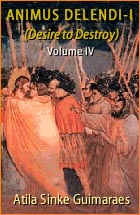 Volume IV |
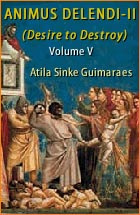 Volume V |
 Volume VI |
 Volume VII |
 Volume VIII |
 Volume IX |
 Volume X |
 Volume XI |
 Special Edition |


